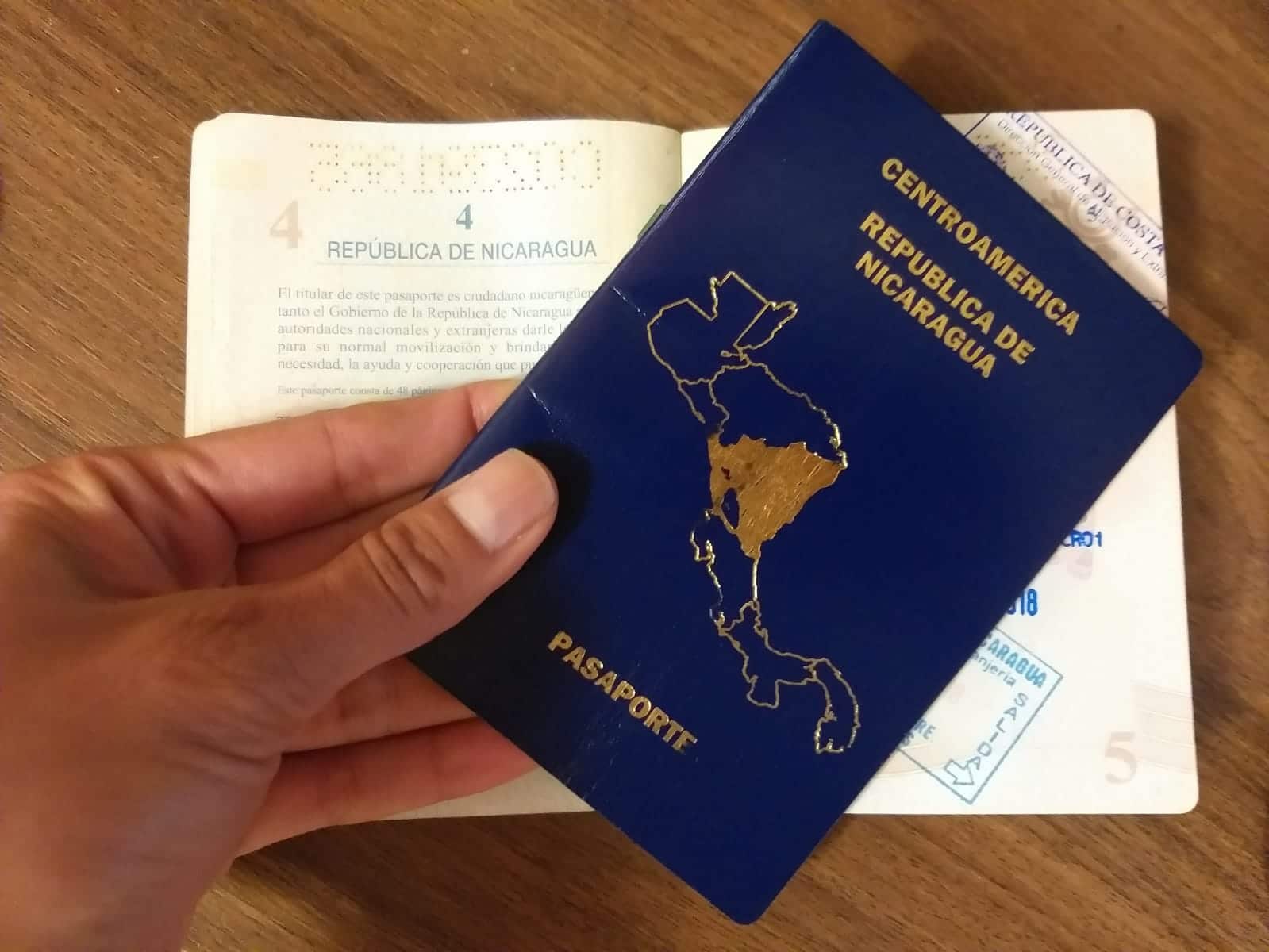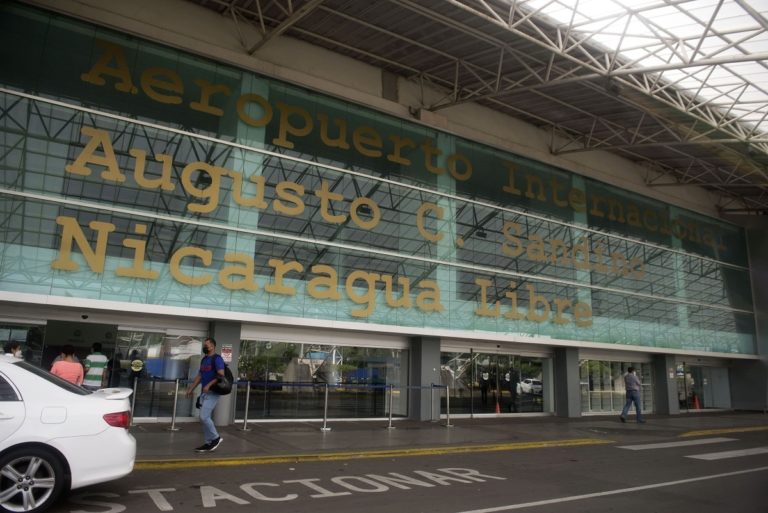23 de junio 2022

Nicaragua: Public Employees Hindered from Traveling to USA

PUBLICIDAD 1M
PUBLICIDAD 4D
PUBLICIDAD 5D
Government continues to require American, United and Spirit, the list of passengers 72 hours in advance; Airlines allege that it will cause them losses

Government continues to require American
The decision by the Ortega-Murillo government to eliminate the requirement that travelers entering Nicaragua present a negative result for Covid-19, is insufficient to encourage the return of US airlines that left the country in March 2020, because of the global border closure, and that two years later is the only destination in the region to which they remain absent.
When the number of deaths and infections from the disease began to decrease, while the number of those vaccinated increased, countries and airlines created protocols to transport passengers with a certain level of security, which allowed companies such as Avianca, COPA and Mexicana to return to Nicaraguan skies.
However, the absence of competitors such as American Airlines, United or Spirit, which fly from Nicaragua to different destinations in the United States, makes us less competitive, since it is cheaper to fly from San Jose or Panama to US cities such as Miami, than to fly from Managua.
The return of Avianca, Copa, and Mexicana was not an easy decision, due to the requirement imposed by the Ortega-Murillo administration to demand that the crews present negative results of the PCR test, which detects Covid-19, as well as the requirement to send in advance the list of passengers to be transported.
“Given that the companies were already informed of the issue, I suppose, logically, that they are doing their analysis to make a decision according to their own interests,” Lucy Valenti, president of the National Chamber of Tourism, told Confidencial.
By eliminating the PCR test requirement, the Nicaraguan Government almost solved one of the three problems that prevented the return of US airlines to the country. Almost, because if a crew member is not vaccinated (and it is not mandatory to be vaccinated), the PCR would have to be required, which again complicates the composition of fly crews, which is an extremely dynamic activity, and thus makes it difficult to comply with this requirement.
The second is to submit the list of passengers 72 hours in advance, both for departing and arriving aircraft. The latter is a problem, because 90% of the passengers boarding these flights come from different destinations within the United States and other countries, which makes it very difficult to comply with this requirement.
The routine is that the government reviews the list and then returns it to the airline, which uses it to allow boarding of their planes, if the passenger is on the list. But if a passenger is arriving from another destination within or outside the United States, flying with another airline, that passenger will only learn that he/she is not accepted until arriving at the airport.
In those cases, the passenger may demand to be paid for lodging and a return ticket, and the companies do not want to bear these costs, just because the Nicaraguan government rejected someone.
Valenti said that, although the government argues that companies such as Avianca can comply with this requirement, it is because 90% of the passengers who use that company to travel to Nicaragua come from Florida.
The third element is a problem of methodology. Valenti further explained that the airlines have their own digitalized systems, but the Nicaraguan government requires them to send the information in Excel, which implies that the airlines must have extra staff to fill out these forms, and this is inefficient.
The fact that there are fewer companies serving the same destination is another form of inefficiency that ends up being paid for, in the first place, by the passengers, and in the medium term, by the whole country. This, because since it is so expensive to travel to and from the United States, it reduces the country’s competitiveness, in addition to the limitation that means that there are few seats available to enter or depart from Nicaragua.
Another source from the tourism sector, who asked to remain anonymous, thinks that the airlines that are working in the Nicaragua-United States route, “are taking advantage of the lack of competition to compensate —as much as they can— what they lost during the time they had to leave their planes on the ground.”
Currently, tickets available to travel between Managua and Miami cost between 900 to 1000 dollars, while flying to that same Florida city from other Central American capitals using American Airlines or Spirit, the low-cost airline, costs 300 to 400 dollars.
This makes many choose to travel to San Jose or Tegucigalpa to fly to Florida or the east coast of the United States; or by United Airlines if they are looking for a destination in Texas or California, so they do not have to travel to Miami.
The option of boarding a charter flight also ceased to be attractive for travelers, after in December, the US airline hired to make a flight to Miami, failed for four consecutive days to transport passengers, so they had to be refunded, and no one contracted another airline to try again.
All this had an impact so that, in 2021, the arrival of tourists to Nicaragua was reduced by 30.5% (that is, 137,000 people less), compared to 2020, said Valenti, citing the Tourism Satellite Account, published by the Central Bank of Nicaragua.
This article was originally published in Spanish in Confidencial and translated by Havana Times
Archivado como:
PUBLICIDAD 3M
Periodista nicaragüense, exiliado en Costa Rica. Durante más de veinte años se ha desempeñado en CONFIDENCIAL como periodista de Economía. Antes trabajó en el semanario La Crónica, el diario La Prensa y El Nuevo Diario. Además, ha publicado en el Diario de Hoy, de El Salvador. Ha ganado en dos ocasiones el Premio a la Excelencia en Periodismo Pedro Joaquín Chamorro Cardenal, en Nicaragua.
PUBLICIDAD 3D